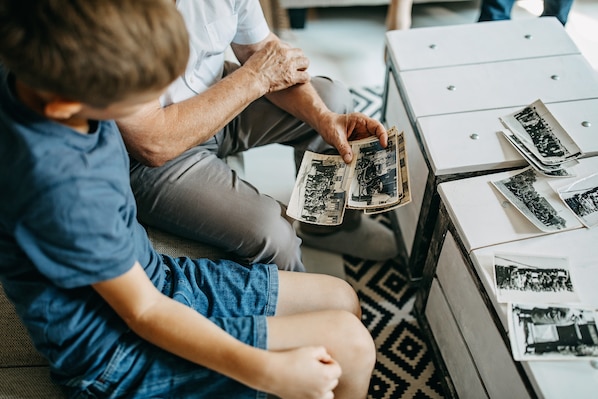This pandemic is replete with tragedy, but one Colorado story not far from my home has been weighing on my heart.
In the Huffington Post on May 7, 2020, Mary Hagen Roberts published an essay about the death of her precious daughter, Laura, who had just turned 33. Laura died not of COVID-19 but of cancer. Her death came much faster than they expected. In early April, the stomach cancer had spread to Laura’s lungs, but because her symptoms mimicked those of the novel coronavirus, she was given a presumptive COVID-19 diagnosis and hospitalized. For a time, she was alone, isolated from her fiancé, Brett, her mother, and even the hospital staff.
Laura was discharged from the hospital on Easter Sunday. But she didn’t want Mary, who is in her 60s and has Addison’s disease, to leave the shelter of her home and risk contracting coronavirus. The “damn virus,” as Mary calls it, kept them apart.
And then a bronchoscopy revealed that Laura had perhaps just a month left to live. Despite the threat of the virus, Mary packed a bag and on April 23rd got in the car to drive the four hours to Laura’s home. Tragically, Laura died that day, minutes before Mary arrived.
“I have no idea how to carry on now that she is gone or what to do with my unbearable sorrow,” Mary writes. “Tell me how to grieve when we are not permitted to have a funeral or memorial service, when the precious body of my child disappears into the back of a repurposed funeral home minivan, never to be seen again. I want the rituals of mourning that our society— that I—have learned to rely on to process grief.”
What a tragic, tragic situation. Grief is always difficult and complicated, but Mary is suffering heightened grief complications because of the pandemic restrictions. My heart aches for her. Not only did her child die, which as a longtime grief counselor and parent I know to be among the most excruciating of life experiences, but she and Laura’s other loved ones have been unable to hold a funeral. They have been prevented from adequately honoring Laura, and they have been unable to gather. They remain separated from each other, isolated silos of grief, without the comfort of mutual support.
Mary is wise. Her comments convey her understanding that funerals are essential because they help us meet our mourning needs. Funerals help us acknowledge and accept the reality of a death, share memories, convert our relationship with the person who died from one of presence to one of memory, give and receive social support, express our grief out loud, consider the meaning of life and death, and help us start to think about how eventually to live life forward with meaning and purpose.
Despite the common misconception, funerals are not rites of closure, because grief is lifelong. Rather, they are rites of initiation. They set us on a good grief path. And, as hundreds of grieving families in myriad complicated loss situations have taught me over the decades, it often feels impossible to embark on the grief journey in situations in which the mourners couldn’t be by the dying person’s side, spend adequate time with the body after the death, or hold the funeral they needed.
I often say that when words are inadequate, especially after a traumatic loss, it’s time to lean on ceremony. Ceremony provides a structure that holds us up. So without a funeral, what are Mary and the hundreds of thousands of families who have lost or will lose a loved one during the pandemic, regardless of cause of death, supposed to do?
First, I would suggest that if you find yourself in this heartbreaking circumstance, bear in mind that any ritual is better than no ritual. Spending even a little private time with the body helps mourners acknowledge the reality of the death and begin to make the arduous transition from having a relationship of presence with the person who died to one of memory. And holding any kind of immediate ceremony is helpful, even if it’s online or an intimate graveside committal.
But after the immediate ceremony options, which I agree are woefully limited and inadequate right now, ceremony can still be called upon to provide that necessary support. I don’t know Mary or Brett. I didn’t know Laura. I would never presume to tell Mary—or anyone—how to grieve and mourn. Each person’s grief is always unique, and each person is always the only expert of their own grief.
But I do understand, as Mary does, that grief rituals help us survive what would otherwise be unsurvivable. And I also know that it’s never too late to have a ceremony—and that especially in challenging loss situations, it’s often helpful to have multiple ceremonies.
Three Ceremonies to Foster Healing
I often recommend that families affected by traumatic death hold three additional ceremonies in the months after the death, spaced out over a period of about two years.
In this pandemic situation, I recommend a simple candle-lighting ceremony in your home as the first ceremony. Simply gather together with the members of your household and invite a few other primary mourners who have been sheltering in place if it’s safe to do so. Gather around a table on which you’ve placed photos and memorabilia of the person who died. You might begin your ceremony with a piece of music and read one or two short prayers or poems. Each guest can hold a small candle and light it as they share a memory or thought. A prayer, song, or piece of music makes a good close.
There are no set rules. Your ceremony can be religious or secular, in keeping with your beliefs. As long as the ceremony helps you explore all of the healing functions of the funeral, it will help you embark on your journey.
Second, I invite you to have a simple gathering as soon as it is safe to do so. Sometimes a significant date makes sense, such as the birthday of your loved one or the anniversary of the death. You might think of this as a memorial service, and even if you had some type of small funeral or online ceremony shortly after the death, you still have the right to plan and hold this type of in-person gathering.
The third ceremony is often best held somewhere between 18 and 24 months after the death, or about a year after the second ceremony. I often recommend a gathering at the cemetery, cremation garden, or final resting place. Again, readings, music, and memory-sharing turn an informal gathering into a meaningful ritual. Redosing yourself at this point with the purposes of the funeral—reality, recall, support, expression, meaning, and transcendence—is a powerful healing elixir.
When grief becomes mourning
Humans have held funeral ceremonies since the beginning of time because only ritual feels up to the task. The death of a loved one is a life-transforming event, and ritual sacredly acknowledges that significance.
What’s more, ceremony gives us something to do with our grief. It puts our inner thoughts and feelings—in other words, our grief—into motion. It helps us express ourselves in the company of others who care about us. It helps us mourn, which is the necessary outward expression of our inner grief. “I have no idea how to carry on. . . or what to do with my unbearable sorrow,” writes Mary. Denied the structure of ritual, she understandably does not know what to do with her grief.
In addition to the repeated use of ceremony (which can even be turned to informally, on a regular basis, in the form of personal daily grief rituals at home or in nearby locations), I humbly suggest that any form of outward mourning helps, over time, to reconcile grief. Talking to good listeners, participating in a support group, journaling, crying, seeing a counselor, putting together memory books or boxes, visiting the final resting place, and other mourning activities help us make the painful but necessary transition to life before a death to life after a death.
Our grief is our love in a new context, and like our love, sharing it and expressing it in ways we find comforting or meaningful—as much as and as often as it tugs at us—one day at a time— makes all the difference. I realize that being unable to physically gather and cry with others hampers some facets of this expression at the moment, so for now, Zoom gatherings and phone calls are the best alternatives we have.
I offer my sincere condolences to Mary and her family as they navigate this terrible time, as well as all other grieving families struggling with similar limitations during the pandemic. I hope you find ways to mourn openly, deeply, authentically as well as lean on ceremony now and in the months to come. Godspeed.
About the Author
Alan D. Wolfelt, Ph.D., is an author, educator, and grief counselor. He serves as Director of the Center for Loss and Life Transition and is on the faculty of the University of Colorado Medical School’s Department of Family Medicine. Dr. Wolfelt has written many bestselling books on coping with grief, including Grief Day by Day, which offers simple, everyday grief rituals to help support mourners. Visit www.centerforloss.com to learn more about grief and loss.





